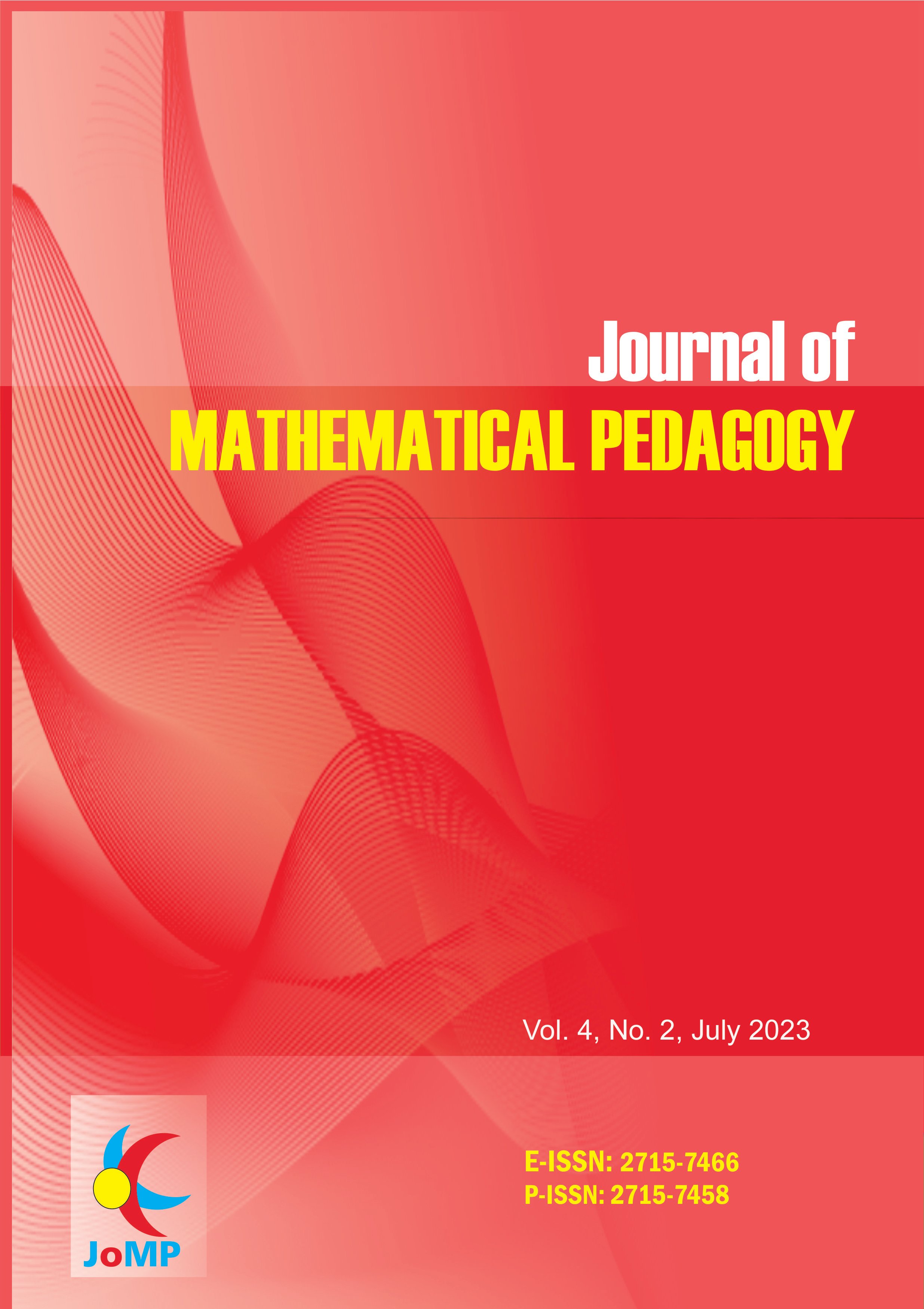Students' New Concept Construction Process Based on APOS Theory: Introvert versus Extrovert
DOI:
https://doi.org/10.26740/jomp.v4n2.p84-96Keywords:
Concept Construction, APOS Theory, Personality TypeAbstract
This study aims to describe the process of constructing new concepts for students with introverted and extroverted personalities. The research subjects were two students of grade VI in one of the elementary schools with different personalities (introverts and extroverts). Data collection techniques using personality test questionnaires, tests, and interviews. Analysis of the data from the proportion concept test results refers to the APOS indicator (Action, Process, Object, Schema). The results showed that there were differences between introverted and extroverted students in the process of constructing students' new concepts on proportion concept. At the Action stage, they can solve problems related to the concept of worth comparison. The two subjects used a similar strategy, namely the multiplication operation. At the Process stage, introverted subjects can interpret the value comparison problem into various representations, both tables and graphs, and can explain its characteristics. While the extrovert subject is only able to represent the problem of value comparison in the form of a table only and experiences doubts in explaining its characteristics. At the Object stage, they can provide other examples of the concept of value comparison, but introverted subjects are more creative in this regard. In addition, they are also able to classify whether a problem includes the concept of valued comparison or not. At the Schema stage, they can define worth comparison and can infer its relationship with several concepts even though the extroverted subject has not fully concluded its relationship with the classification of comparison. This description can be used as input for teachers in choosing learning methods or strategies to convey material that is well received by each student.
References
Agnesti, Y., & Amelia, R. (2021). Faktor-Faktor Kesulitan Belajar Siswa pada Materi Perbandingan dengan Menggunakan Pendekatan Kontekstual. Mosharafa: Jurnal Pendidikan Matematika, 10(2), 311-320.
Awaludin, A. A. R., Selvia, N., & Andrari, F. R. (2021). Mathematical Representation of Students in Solving Mathematic Problems Reviewed from Extrovert-Introvert Personality. International Journal of Elementary Education, 5(2), 323. https://doi.org/10.23887/ijee.v5i2.33206
Azizah, S. N., & Suhendra. (2020). Mathematics Anxiety of Senior High School Students Based on Extrovert and Introvert Personality Types. Journal of Physics: Conference Series, 1521(3). https://doi.org/10.1088/1742-6596/1521/3/032047
Safitri, A. I., Syamsuri, S., & Jaenudin, J. (2021). Konstruksi Konsep Fungsi Matematis Bagi Siswa Sma Berdasarkan Teori Apos. Wilangan: Jurnal Inovasi dan Riset Pendidikan Matematika, 2(3), 149. https://doi.org/10.56704/jirpm.v2i3.12353
Sunardi, F., Suwito, S., Trapsilasiwi, A. O., & Oktavianingtyas, D. (2022). Analysis of Geometry Problem Solving Based on APOS Theory for Class IX Students. Universitas Wisnuwardhana Malang Journal of Education and Learning Mathematics Research (JELMaR), 3(1), 33. https://doi.org/10.37303/jelmar.v3i1.69
Umam, K., & Azhar, E. (2019). Peningkatan Pemahaman Konsep Matematis Siswa Melalui Pendekatan (Somatic, Auditory, Visual and Intellectual). JPMI (Jurnal Pendidikan Matematika Indonesia), 4(2), 53. https://doi.org/10.26737/jpmi.v4i2.1038
Winarsih, M., & Mampouw, H. L. (2019). Profil Pemahaman Himpunan oleh Siswa Berdasarkan Perbedaan Kemampuan Matematika Ditinjau dari Teori APOS. 8.
 Abstract views: 184
,
Abstract views: 184
, PDF Downloads: 235
PDF Downloads: 235





